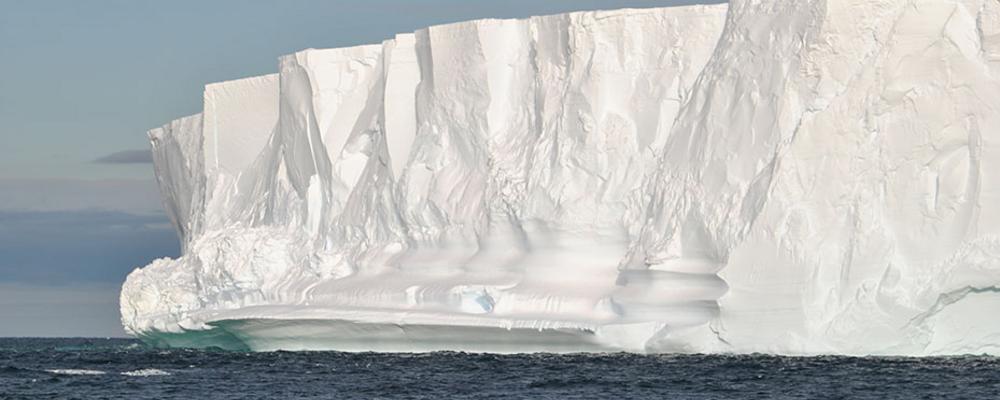
Polar Research
Marine polar research is carried out largely in the form of international collaboration and is often multidisciplinary. The department is active in several areas of polar research where our researchers participate in international expeditions to the polar regions, often as part of major international programmes. Marine polar research is to a great extent related to climate issues.
Research in the polar regions
The polar regions form an important part of the Earth's climate system, where we are currently seeing great changes such as rising temperatures and the shrinking of the sea ice cover in the Arctic. The vast ice sheets of Greenland and the Antarctic occupy a special position because of the enormous amount of frozen water which would have a significant impact on sea level should these melt. The polar seas also constitute special chemical environments, and support unique flora and fauna.
Research themes relating to the Arctic
- Ocean circulation in the deep sea, the continental rise and shallow-shelf areas.
- The significance of biogeochemical processes for the transformation of different chemical elements such as carbon, oxygen and nutrients in water and sediment, including their impact on ocean acidification and the ocean-atmosphere interaction of carbon dioxide.
- The role of the Arctic Ocean as sink of anthropogenic carbon dioxide
- The role of sea ice in the production of ozone-depleting halogenated hydrocarbons, and the interaction of gases between snow – ice - sea and atmosphere.
- Sea ice as a medium for different biological organisms.
- Sediment formations on the continental shelf in the Arctic as a climate archive
- The melting of Greenland's glacier
Research themes relating to the Antarctic
- Ocean circulation and floating glaciers in the coastal areas of the Antarctic
- The development of autonomous marine observation systems in the Southern Ocean
- The role of sea ice in the production of ozone-depleting halogenated hydrocarbons, and the interaction of gases between snow – ice - sea and atmosphere.
- Research into the ice caves under the floating glaciers in the Antarctic
- Mechanisms for transporting water, heat and substances between the deep sea and the continental shelf
UNEP-led research panel
We are also participating in a UNEP-led research panel to assess the significance of UV-B rays for the ecology of the polar seas.
